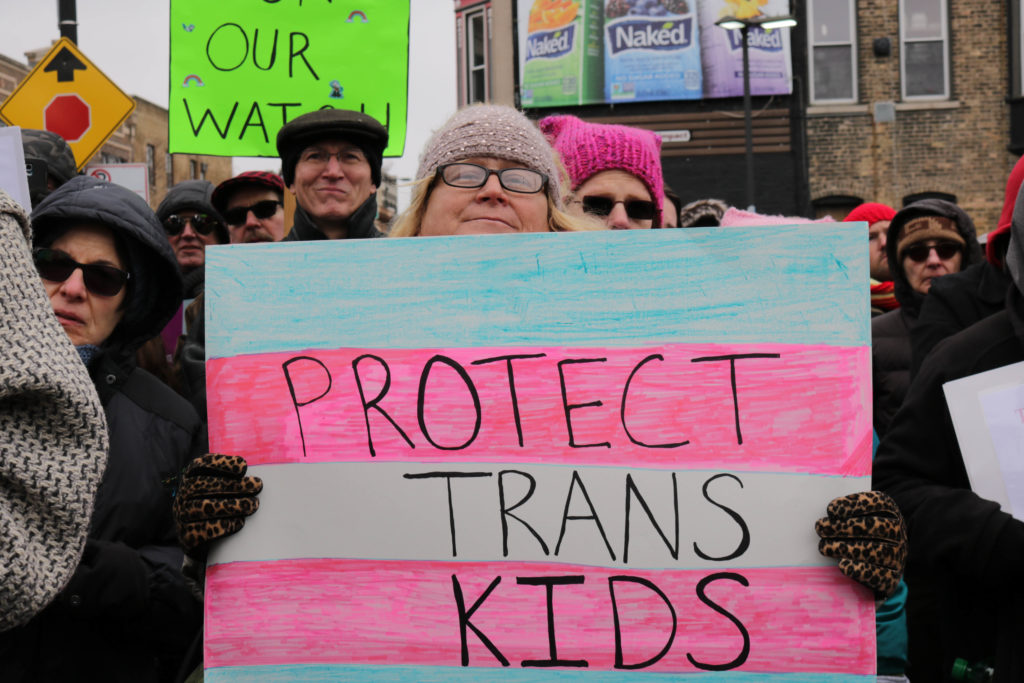Sign supporting trans students. (Derek R Henkle/AFP/Getty)
Republican lawmakers in a dozen states are promoting bills that focus on young transgender people at the urging of conservative advocacy groups, LGBT+ advocates say.
These bills include barring doctors from providing certain gender-related medical treatment to young trans people and banning young trans people from playing school sports.
If the bills become laws, they “would bring devastating harms to the transgender community,” said Chase Strangio, a lawyer at the American Civil Liberties Union.
Strangio warned that a ban on doctors giving trans youth certain treatment – currently proposed in Colorado, Florida, Missouri, Oklahoma, South Carolina and South Dakota – could lead to an increase in suicides of young trans people.
The bills have been endorsed by multiple national conservative groups, including anti-abortion Christian law firm the Alliance Defending Freedom.
The ADF is behind several cases challenging trans students’ right to play on the school sports team corresponding to their gender identity, as well as the landmark anti-trans discrimination case that was heard by the US Supreme Court in October 2019 (a judgement is expected in spring 2020).
Eagle Forum, another conservative group, is also backing the proposed bills.
“We’ve got lots of legislators working on this,” said Gayle Ruzicka, an activist with Eagle Forum’s Utah chapter. “We don’t let this happen to children.”
A Utah Republican, Brad Daw, said he accepted Eagle Forum’s request to write a law, although he changed some of the language used.
“We want to do what we think is reasonable, postponing such a one-way decision until the youngsters grow up,” he said.
“I cannot imagine what happens to transgender people if these criminal bans pass,” said Strangio. “I don’t think we can possibly raise the alarm enough, because people are going to die.”
The medical director of the Trevor Project, a youth suicide-prevention service, also expressed dismay, saying the bills could deprive some young people of potentially life-saving treatment.
“They would force doctors to make an untenable decision and could result in their imprisonment for providing best-practice medical care,” said Dr. Alexis Chavez, a psychiatrist.
